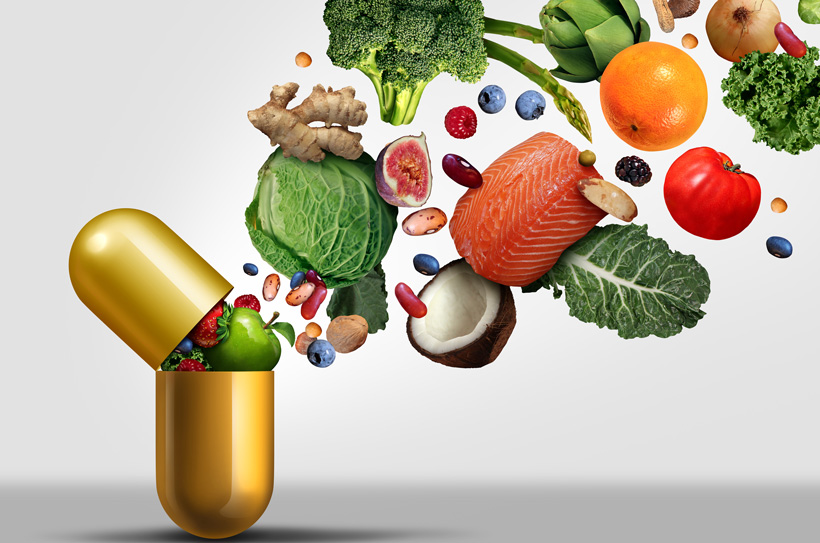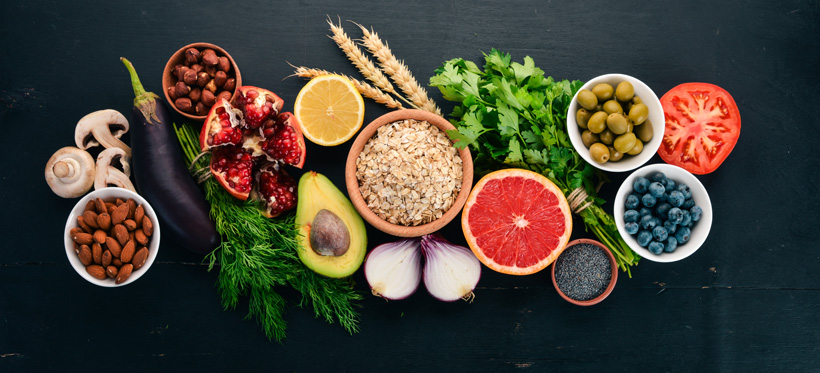The Antioxidant Cleanse: How to Detox Your Body, Mind, and Soul

Following an extensive period of winter or stressful holiday season, there is often a lot of social media buzz about dietary detox or cleanses. Many of the detoxes and cleanses on the market today refer to tea or juice cleansing designed to “flush” the body of toxins. However, one of the scientifically backed ways to perform a cleanse is to strengthen the body’s natural detoxification system. Specifically, one of the best ways to boost your body’s detox system on the molecular level is through the intake of antioxidants.
As the primary compounds that slow or inhibit oxidation, antioxidants are the key component of reducing potential damage to cells. Antioxidants have the ability to neutralize the reactive nature of harmful free radicals and keep your body functioning properly. Since free radicals are often the waste products of normal bodily processes, too many free radicals can result in toxic accumulation and result in damage to healthy cells. Researchers associate toxic accumulation with the following potential conditions:
- Headaches and migraines
- Constipation
- Bad breath
- Bloating
- Muscle pain
- Poor concentration
- Poor skin condition
- Indigestion
- Inflammation
- Tiredness
Fortunately, increasing antioxidant intake can keep free radicals at bay and help the body maintain its natural cleansing mechanisms. Internally, the body performs its own “flushing” mechanism as long as it has an adequate supply of vitamins and nutrients.
For example, antioxidants can pass through cell membranes and provide the molecules that the liver uses to synthesize proteins. As the chief detoxifying organ, the liver can then do its job to clear the body of toxic or unwanted substances.
With the modern diet of processed foods, however, it can be difficult for the average person to know how to get the right number of antioxidants needed to sustain a healthy detox.
Researchers have narrowed sources of antioxidants into three general categories: superfoods, vitamins, and essential nutrients (such as nitric oxide). A look at these categories can help you make responsible choices as you navigate through an everyday diet.
Antioxidant Superfoods
Antioxidant superfoods allow the body to absorb the right nutrients during each meal. Since digestion is a key way that the liver and endocrine system absorb molecules, it is only fitting that consuming the right food is one of the best ways the body extracts desirable compounds for the internal organs.
Nutritionists refer to these ingredients as superfoods because they contain a concentrated amount of potent antioxidants. Some of the most recommended superfoods include berries, spinach, amla, aloe vera, and kale. These foods are rich in water-soluble vitamins (like vitamin C and B-complex) that absorb quickly within the body. And because the body does not automatically synthesize water-soluble vitamins on its own, it is imperative to get these nutrients through dietary intake.
In the modern diet, it can be difficult to get the right amount of these vitamins. As a result, many dieticians recommend taking a potent supplement daily during meals. Supplements like Kyani Sunrise offer a great way to get necessary antioxidants while eating breakfast. Because it comes it powdered form, you can mix Sunrise with juice or water so that it absorbs quickly within the system.
Naturally high in revitalising nutrients like vitamin C, this blend may also provide vital energy to the cells and boost the mood. Since it contains over 10 whole-food ingredients, Kyani Sunrise is a great way to get the right balance of nutrients from organic ingredients that may be hard to find individually.
Antioxidant Vitamins
In addition to antioxidant superfoods, there is also a subset of antioxidant vitamins essential to the body’s immune function and self-repair. These include fat-soluble vitamins E and D, vitamin A (beta-carotene), and omega-3 fatty acids. Each of these nutrients has an important set of functions that the body stores for gradual use.
For example, the liver stores and uses fat-soluble vitamins jointly to create and secrete proteins. These proteins bind with free radicals that the body can then eliminate through the urinary system. The right supply of antioxidant vitamins enables these organs to perform their jobs effectively.
Individually, these vitamins and nutrients have important functions as well. Vitamin E represents a set tocotrienolsthat the body’s organs use for repair. Scientists and clinicians consider vitamin E so important for repair that many dermatologists recommend taking this vitamin to improve complexion.
Vitamin D is essential for the immune system, bone creation, and absorption of calcium within the body. Because many Westerners traditionally do not get enough Vitamin D in their diets, some governments have added the vitamin to food products like milk and yogurt. And both omega-3s and beta carotene may boost immune function and help the body absorb other key nutrients.
Since the modern diet often does not supply the recommended amount of these vitamins, the right solution may involve obtaining the nutrients through supplements. Kyani Sunset is an easy-to-absorb softgel that contains expertly developed portions of all four nutrients. Sourced from organic ingredients like Alaskan wild salmon and Alaskan blueberries, the supplement is one of the top sources for increasing antioxidant intake throughout the year. Because Kyani Sunset is an evening supplement, the body can absorb the nutrients during sleep for optimum repair.
Since fat-soluble vitamins are essential to reactions within the endocrine and nervous systems, intake of high-quality supplements may also help with cognitive function.
Antioxidant Nitric Oxide
The antioxidant nitric oxide has garnered a great deal of attention as an ingredient in nutritional supplements. Fortunately, nitric oxide is not just the latest hyped additive. In fact, the American Association for the Advancement of Science (AAAS) refers to nitric oxide as a “breakthrough molecule” due to the fact that it can fight free radicals throughout most of the body’s pathways. Furthermore, nitric oxide plays a central role in many of the body’s pathological processes, including metabolism, bonding, and repair.
Due to these discoveries, the 1998 Nobel Prize Commission awarded Louis J. Ignarro and Ferid Murad the award for medicine and physiology for their discovery and isolation of nitric acid. According to the peer review of the award, nitric acid is a key signaling molecule necessary for the function of the cardiovascular and immune systems.
Fortunately, health-conscious individuals do not have to scour the supplement aisle to find nitric oxide. Instead, Kyani Nitro offers a complete nitric oxide line (in either FX or Xtreme). Made from organic noni juice, Kyani Nitro contains a natural blend of mangesium, CoQ10, niacin, and chromium that helps boost the body’s own nitric oxide production. According to reviews, using a nitric oxide supplement is often the “missing link” in rounding out a complete immunity and longevity regimen.
The Bottom Line
Antioxidant cleanses are the most scientifically backed way to help the body perform a natural detox. Rather than depleting the body through starvation fasts or tea cleanses, an antioxidant cleanse replenishes the body of essential nutrients.
Through superfood blends, key vitamins, and powerful molecules like nitric oxide, you can help ensure the body’s optimal performance in fighting free radicals and maintaining excellent health.
References
http://www.cs.stedwards.edu/chem/Chemistry/CHEM43/CHEM43/Antioxidants/Antioxidants.HTML
https://www.ncbi.nlm.nih.gov/pubmed/25522674
https://www.ncbi.nlm.nih.gov/books/NBK279393/
https://nccih.nih.gov/health/antioxidants/introduction.htm
https://medlineplus.gov/antioxidants.html
https://www.betterhealth.vic.gov.au/health/healthyliving/antioxidants


